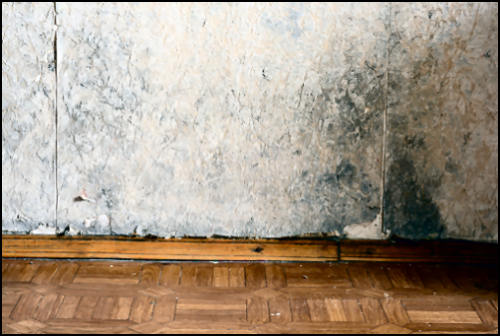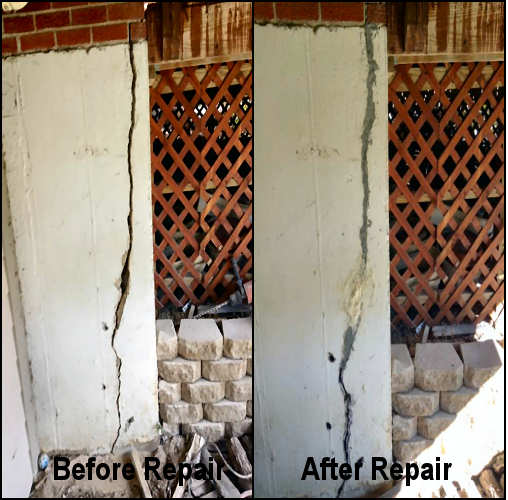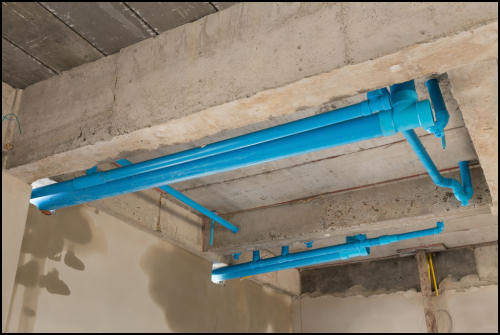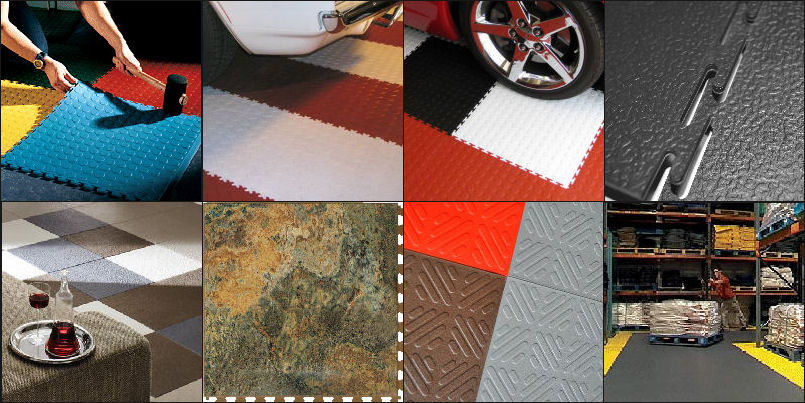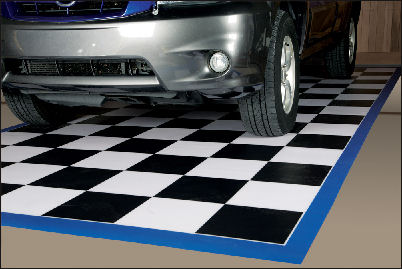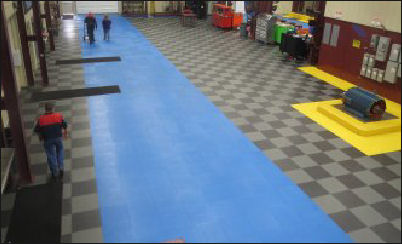About Wall Cracks Introduction
Foundation cracks are common and normal in poured concrete walls. Cracks in concrete block walls are usually along the mortar. Since block walls are weaker than poured walls, these types of cracks are serious!
If not repaired, cracks will lead to other types of damages. Basement walls are the foundation on which your home rests. Cracks, bowed walls, or crumbling walls must be repaired.
Cracks in a basement wall happen for a variety of reasons. A shifting foundation or mistakes in mixing or pouring the concrete is a common cause. It's essential that one discovers the cause of the cracked wall or defect to be sure the repair will last.
If a basement wall crack is horizontal or appears to run in line with a crack in the floor, then there may be a deeper structural issue. In this instance, SKV Construction will help provide an evaluation for resolving the structural issue. This type of issue is much, much more serious and should not be a DIY repair (Do It Yourself).
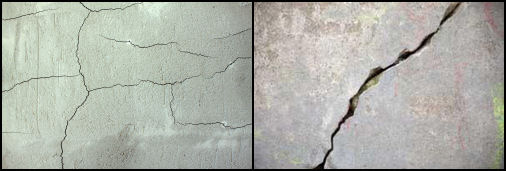
Repair of Basement Wall Cracks
Depending on the nature of the crack, SKV Construction uses different techniques to stabilize and secure the crack. A few steps may include:
- removing the loose concrete by wire brushing
- removing concrete dust
- sealing the cracks with durable epoxy sealer
- sealing the crack using carbon fiber grid repair
- finish priming and/or painting the wall
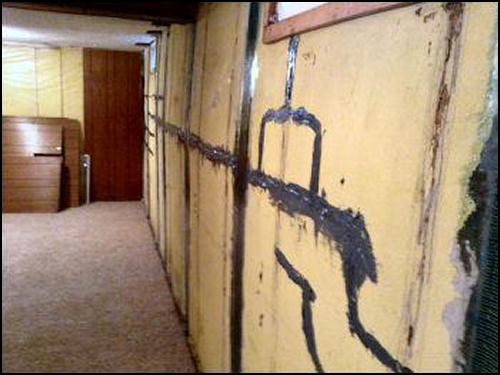
Does Your Basement Need Crack Repair? We Can Help!
When Is It Essential To Repair Basement Wall Cracks?
Essential repair is dictated by these situations:
- when cracks are horizontal
- when getting your home appraised
- when selling your home
- when cracks are leaking or have leaked
- when cracks are wide (1/2")
- when you have persistent and repeated mold growth threatening health of the occupants
- when finishing a new room or remodeling
View our crack repair projects here. Foundation Crack Repair, Frozen Concrete Repair, Tilted Wall Stabilized
Contact SKV Construction today to fix your basement wall cracks.

